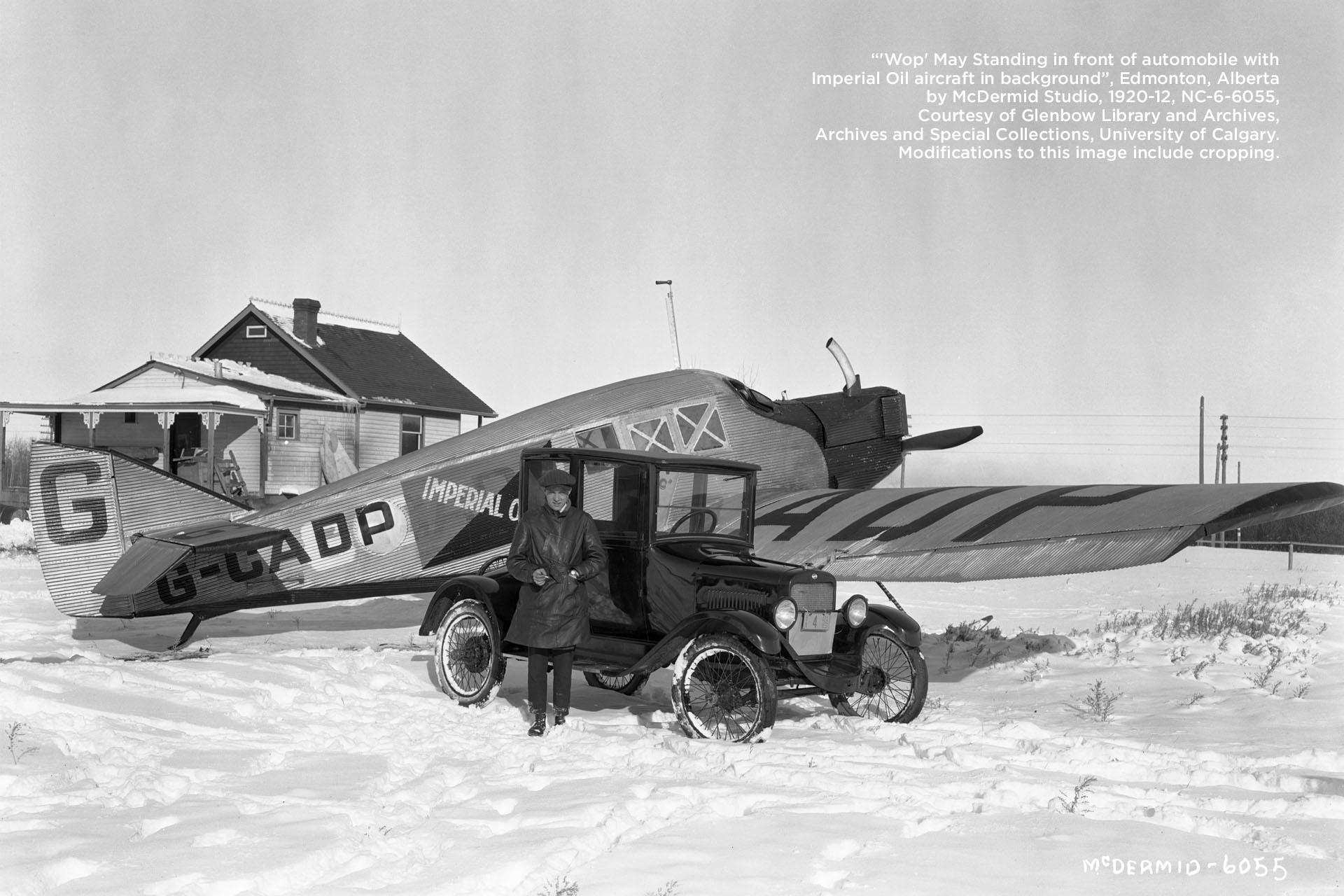
Early oil companies needed people with extra grit in the race to develop resources. After Imperial Oil struck black gold in 1920 near Norman Wells, NWT, it needed to launch workers and equipment to an oilfield faster than their competition--typical travel from Edmonton in winter took eight weeks in those days.
Imperial hired an Alberta WWI flying ace named Wilfrid “Wop” May and his partner, George W. Gorman for the challenge. Their task, land resources in the north when air travel didn’t often include runways, radio or navigation equipment, or reliable weather forecasts.
May and Gorman secured two uninsulated planes, named Vic and Rene, and outfitted them with skis–the first time that equipment was used in aviation in Western Canada. The planes were secured and flown from New York, New York to Edmonton in the dead of winter to ensure they could handle the conditions. And handle it they did. May landed at night in a biting -38ºC relying on a bonfire to light the way.
May and Gorman’s gutsy air experiment stood the test. The pair sped the development of Norman Wells, changed the industry, and helped to secure Imperial’s stake in the area that continues today.

